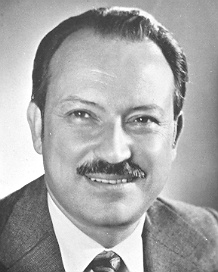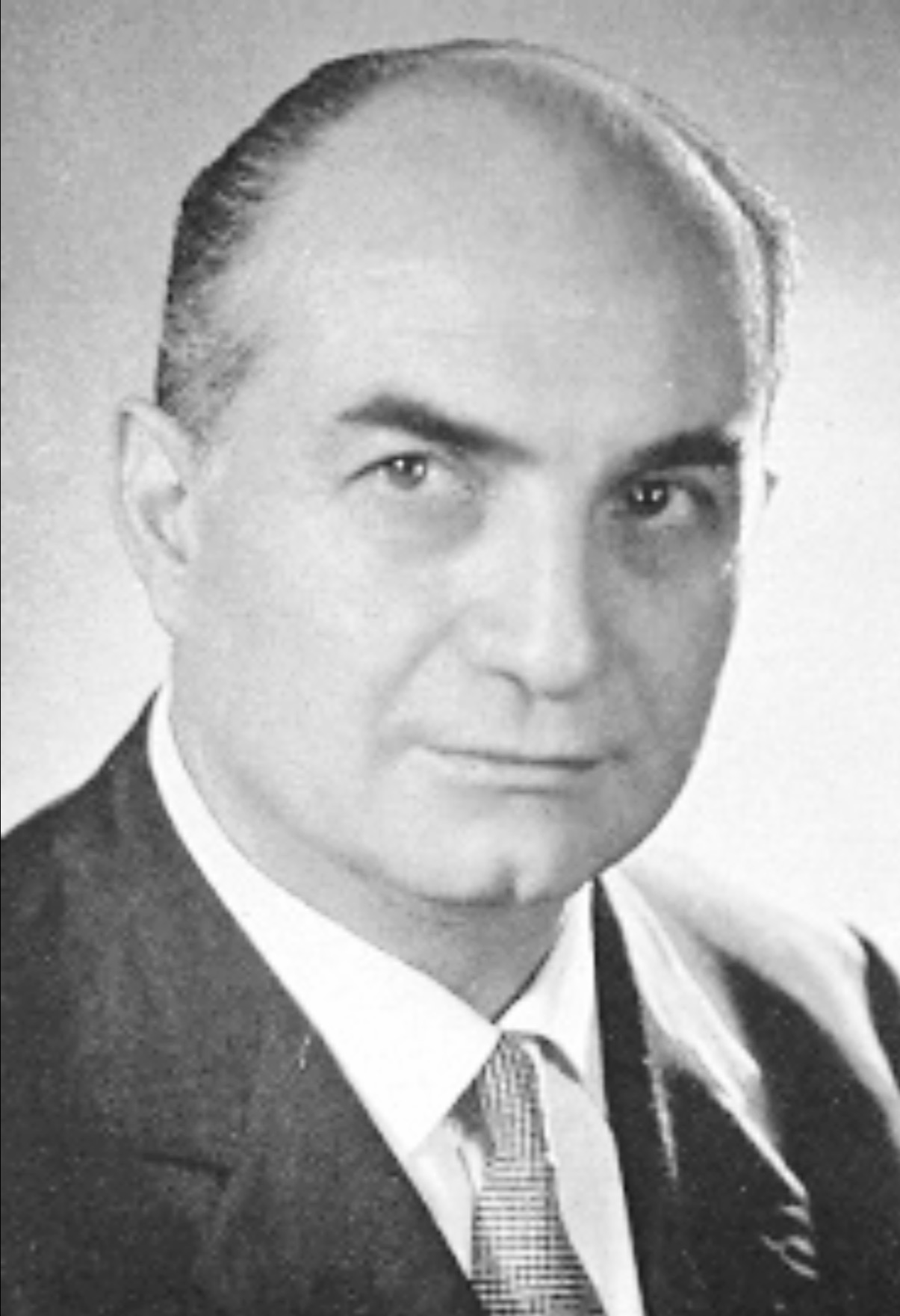|
Mauro Ferri
Mauro Ferri (15 March 1920 – 29 September 2015) was an Italian politician and judge. He was a member of the Italian Socialist Party from 1944 to 1969, when he switched affiliations to the Italian Democratic Socialist Party (PSDI). He was the Italian Minister of Economic Development from 1972 to 1973 in Prime Minister Giulio Andreotti's second cabinet. Ferri was elected as a Member of European Parliament in 1979 and served until 1984. He then served as President of the Constitutional Court of Italy The Constitutional Court of the Italian Republic ( it, Corte costituzionale della Repubblica Italiana) is the highest court of Italy in matters of constitutional law. Sometimes, the name ''Consulta'' is used as a metonym for it, because its sessi ... from 1995 to 1996. Ferri died in his hometown of Rome on 29 September 2015. References 2015 deaths 1920 births Government ministers of Italy Italian Socialist Party politicians Italian Democratic Socialist Party polit ... [...More Info...] [...Related Items...] OR: [Wikipedia] [Google] [Baidu] |
Italian Democratic Socialist Party (historical)
The Italian Democratic Socialist Party (, PSDI), also known as Italian Social Democratic Party, was a minor social-democratic political party in Italy. The longest serving partner in government for Christian Democracy, the PSDI had been an important force in Italian politics, before the 1990s decline in votes and members. The party's founder and longstanding leader was Giuseppe Saragat, who served as President of the Italian Republic from 1964 to 1971. History The years of the ''First Republic'' The party was founded as the Socialist Party of Italian Workers (PSLI) in 1947 by a splinter group of the Italian Socialist Party (PSI), due to the decision of the latter to join the Italian Communist Party (PCI) in the Popular Democratic Front's electoral list for the 1948 general election. The split, led by Giuseppe Saragat and the sons of Giacomo Matteotti, took the name of ''Scissione di Palazzo Barberini'', from the name of a palace in Rome where it took place. On 1 May 195 ... [...More Info...] [...Related Items...] OR: [Wikipedia] [Google] [Baidu] |
MEPs For Italy 1979–1984
A Member of the European Parliament (MEP) is a person who has been elected to serve as a popular representative in the European Parliament. When the European Parliament (then known as the Common Assembly of the ECSC) first met in 1952, its members were directly appointed by the governments of member states from among those already sitting in their own national parliaments. Since 1979, however, MEPs have been elected by direct universal suffrage. Earlier European organizations that were a precursor to the European Union did not have MEPs. Each member state establishes its own method for electing MEPs – and in some states this has changed over time – but the system chosen must be a form of proportional representation. Some member states elect their MEPs to represent a single national constituency; other states apportion seats to sub-national regions for election. They are sometimes referred to as delegates. They may also be known as observers when a new country is seekin ... [...More Info...] [...Related Items...] OR: [Wikipedia] [Google] [Baidu] |
Italian Democratic Socialist Party Politicians
Italian(s) may refer to: * Anything of, from, or related to the people of Italy over the centuries ** Italians, an ethnic group or simply a citizen of the Italian Republic or Italian Kingdom ** Italian language, a Romance language *** Regional Italian, regional variants of the Italian language ** Languages of Italy, languages and dialects spoken in Italy ** Italian culture, cultural features of Italy ** Italian cuisine, traditional foods ** Folklore of Italy, the folklore and urban legends of Italy ** Mythology of Italy, traditional religion and beliefs Other uses * Italian dressing, a vinaigrette-type salad dressing or marinade * Italian or Italian-A, alternative names for the Ping-Pong virus, an extinct computer virus See also * * * Italia (other) Italia may refer to the following: * Italy in Italian language and several other languages * Roman Italy (''Italia'' in Latin), the Italian peninsula during Roman times People * Italia (name), list of people an ... [...More Info...] [...Related Items...] OR: [Wikipedia] [Google] [Baidu] |
Italian Socialist Party Politicians
Italian(s) may refer to: * Anything of, from, or related to the people of Italy over the centuries ** Italians, an ethnic group or simply a citizen of the Italian Republic or Italian Kingdom ** Italian language, a Romance language *** Regional Italian, regional variants of the Italian language ** Languages of Italy, languages and dialects spoken in Italy ** Italian culture, cultural features of Italy ** Italian cuisine, traditional foods ** Folklore of Italy, the folklore and urban legends of Italy ** Mythology of Italy, traditional religion and beliefs Other uses * Italian dressing, a vinaigrette-type salad dressing or marinade * Italian or Italian-A, alternative names for the Ping-Pong virus, an extinct computer virus See also * * * Italia (other) * Italic (other) * Italo (other) * The Italian (other) The Italian may refer to: * ''The Italian'' (1915 film), a silent film by Reginald Barker * ''The Italian'' (2005 film), a Russian film by A ... [...More Info...] [...Related Items...] OR: [Wikipedia] [Google] [Baidu] |
Government Ministers Of Italy
A government is the system or group of people governing an organized community, generally a state. In the case of its broad associative definition, government normally consists of legislature, executive, and judiciary. Government is a means by which organizational policies are enforced, as well as a mechanism for determining policy. In many countries, the government has a kind of constitution, a statement of its governing principles and philosophy. While all types of organizations have governance, the term ''government'' is often used more specifically to refer to the approximately 200 independent national governments and subsidiary organizations. The major types of political systems in the modern era are democracies, monarchies, and authoritarian and totalitarian regimes. Historically prevalent forms of government include monarchy, aristocracy, timocracy, oligarchy, democracy, theocracy, and tyranny. These forms are not always mutually exclusive, and mixed gove ... [...More Info...] [...Related Items...] OR: [Wikipedia] [Google] [Baidu] |
1920 Births
Nineteen or 19 may refer to: * 19 (number), the natural number following 18 and preceding 20 * one of the years 19 BC, AD 19, 1919, 2019 Films * ''19'' (film), a 2001 Japanese film * ''Nineteen'' (film), a 1987 science fiction film Music * 19 (band) 19 was a Japanese pop/folk duo. Its members were Kenji Okahira and Keigo Iwase The Japanese language has a system of honorific speech, referred to as , parts of speech that show respect. Their use is mandatory in many social situations. Ho ..., a Japanese pop music duo Albums * ''19'' (Adele album), 2008 * ''19'', a 2003 album by Alsou * ''19'', a 2006 album by Evan Yo * ''19'', a 2018 album by MHD * ''19'', one half of the double album '' 63/19'' by Kool A.D. * '' Number Nineteen'', a 1971 album by American jazz pianist Mal Waldron * ''XIX'' (EP), a 2019 EP by 1the9 Songs * "19" (song), a 1985 song by British musician Paul Hardcastle. * "Nineteen", a song by Bad4Good from the 1992 album ''Refugee (Bad4 ... [...More Info...] [...Related Items...] OR: [Wikipedia] [Google] [Baidu] |
2015 Deaths
This is a list of deaths of notable people, organised by year. New deaths articles are added to their respective month (e.g., Deaths in ) and then linked here. 2022 2021 2020 2019 2018 2017 2016 2015 2014 2013 2012 2011 2010 2009 2008 2007 2006 2005 2004 2003 2002 2001 2000 1999 1998 1997 1996 1995 1994 1993 1992 1991 1990 1989 1988 1987 See also * Lists of deaths by day * Deaths by year {{DEFAULTSORT:deaths by year ... [...More Info...] [...Related Items...] OR: [Wikipedia] [Google] [Baidu] |
Mario Tanassi
Mario Tanassi (17 March 1916 – 5 May 2007) was an Italian politician, who was several times Minister of the Italian Republic. In 1979 he was condemned by the Constitutional Court of Italy for his involvement in the Lockheed bribery scandal. Biography Tanassi was born at Ururi, in the province of Campobasso. He joined the Italian Democratic Socialist Party (''Partito Socialista Democratico Italiano''; PSDI) and was later national co-secretary, alongside Francesco De Martino, of the unified PSI-PSDI, a short-lived reunion of the PSDI and the Italian Socialist Party. He was minister of defence for the first time in the Rumor II Cabinet (1970), formed by an alliance between Christian Democracy (DC), PSI and PSDI. In 1972 he was again appointed as minister of defence, as well as vice-prime minister, in the Andreotti II Cabinet (in which the Italian Liberal Party had replaced the Socialists). Tanassi was minister of defence for the third time in the fourth Rumor Government (DC-PSI-PS ... [...More Info...] [...Related Items...] OR: [Wikipedia] [Google] [Baidu] |
Italian Socialist Party
The Italian Socialist Party (, PSI) was a socialist and later social-democratic political party in Italy, whose history stretched for longer than a century, making it one of the longest-living parties of the country. Founded in Genoa in 1892, the PSI dominated the Italian left until after World War II, when it was eclipsed in status by the Italian Communist Party. The Socialists came to special prominence in the 1980s, when their leader Bettino Craxi, who had severed the residual ties with the Soviet Union and re-branded the party as " liberal-socialist", served as Prime Minister (1983–1987). The PSI was disbanded in 1994 as a result of the '' Tangentopoli'' scandals. The party has had a series of legal successors: the Italian Socialists (1994–1998), the Italian Democratic Socialists (1998–2007) and the Italian Socialist Party (since 2007, originally "Socialist Party"). These parties have never reached the popularity of the old PSI. Socialist leading members and vote ... [...More Info...] [...Related Items...] OR: [Wikipedia] [Google] [Baidu] |
Constitutional Court Of Italy
The Constitutional Court of the Italian Republic ( it, Corte costituzionale della Repubblica Italiana) is the highest court of Italy in matters of constitutional law. Sometimes, the name ''Consulta'' is used as a metonym for it, because its sessions are held in Palazzo della Consulta in Rome. History The court is a post-World War II innovation. The Court was established by the republican Constitution of Italy in 1948, but it became operative only in 1955 after the enactment of the Constitutional Law n. 1 of 1953 and the Law n. 87 of 1953. It held its first hearing in 1956. Powers According to Article 134 of the Italian Constitution, the Court shall pass judgement on * controversies on the constitutional legitimacy of laws issued by the State and Regions and when the Court declares a law unconstitutional, the law ceases to have effect the day after the publication of the ruling; * conflicts arising from allocation of powers of the State and those powers allocated to State ... [...More Info...] [...Related Items...] OR: [Wikipedia] [Google] [Baidu] |
Member Of European Parliament
A Member of the European Parliament (MEP) is a person who has been elected to serve as a popular representative in the European Parliament. When the European Parliament (then known as the Common Assembly of the ECSC) first met in 1952, its members were directly appointed by the governments of member states from among those already sitting in their own national parliaments. Since 1979, however, MEPs have been elected by direct universal suffrage. Earlier European organizations that were a precursor to the European Union did not have MEPs. Each member state establishes its own method for electing MEPs – and in some states this has changed over time – but the system chosen must be a form of proportional representation. Some member states elect their MEPs to represent a single national constituency; other states apportion seats to sub-national regions for election. They are sometimes referred to as delegates. They may also be known as observers when a new country is seekin ... [...More Info...] [...Related Items...] OR: [Wikipedia] [Google] [Baidu] |



